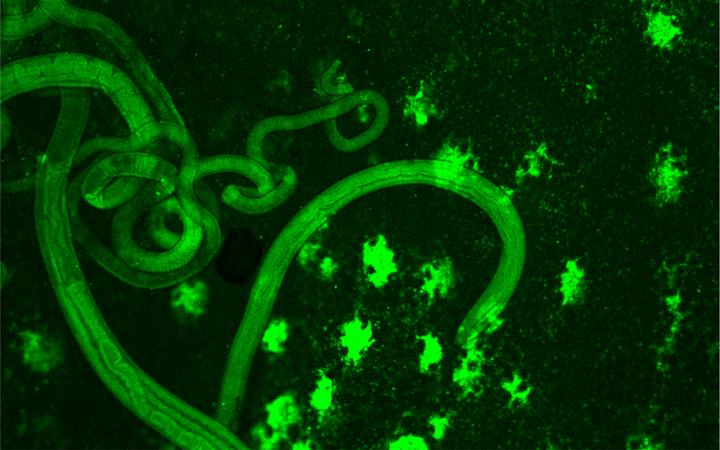Gut infection can speed development of brain diseases
Infections in the gut can accelerate the onset of degenerative conditions.

Infections in the digestive system can speed the development of neurodegenerative diseases, research has shown.
The study, carried out in mice, links an immune response caused by a gut infection with the faster onset of brain infections caused by abnormal proteins, known as prions.
These findings aid our understanding of the factors that can affect susceptibility to prion infections, for which there are no treatment and which can cause extensive brain damage and symptoms including memory loss, personality changes and difficulties with movement.
New research
Researchers studied mice with prions in their central nervous systems as well as an infection worm infection in their intestine, which had not yet developed symptoms of prion disease.
A low dose of worm infection caused a specific immune response that accelerated the onset of prion disease in the animals.
Prion infections are invariably fatal and there are currently no treatments available. This research suggests that treatments that block these effects might also help delay the onset of brain damage in these devastating diseases.
This work is likely to have implications for the study of similar diseases in people, such as whether gastroenteritis can also worsen the symptoms of Alzheimer’s disease or Parkinson’s disease.
The study, published in Scientific Reports and funded by the Biotechnology and Biological Sciences Research Council, was carried out in collaboration with the University of Manchester.
Previous work
Previous research at the Roslin Institute, also led by the same team, showed that specialised cells in the lining of the gut are key to whether or not a prion infection can take hold in the body.
** The Roslin Institute receives strategic investment funding from the Biotechnology and Biological Sciences Research Council and it is part of the University of Edinburgh’s Royal (Dick) School of Veterinary Studies. **
Related links
Prion Research and Neuropathology at the Roslin Institute


